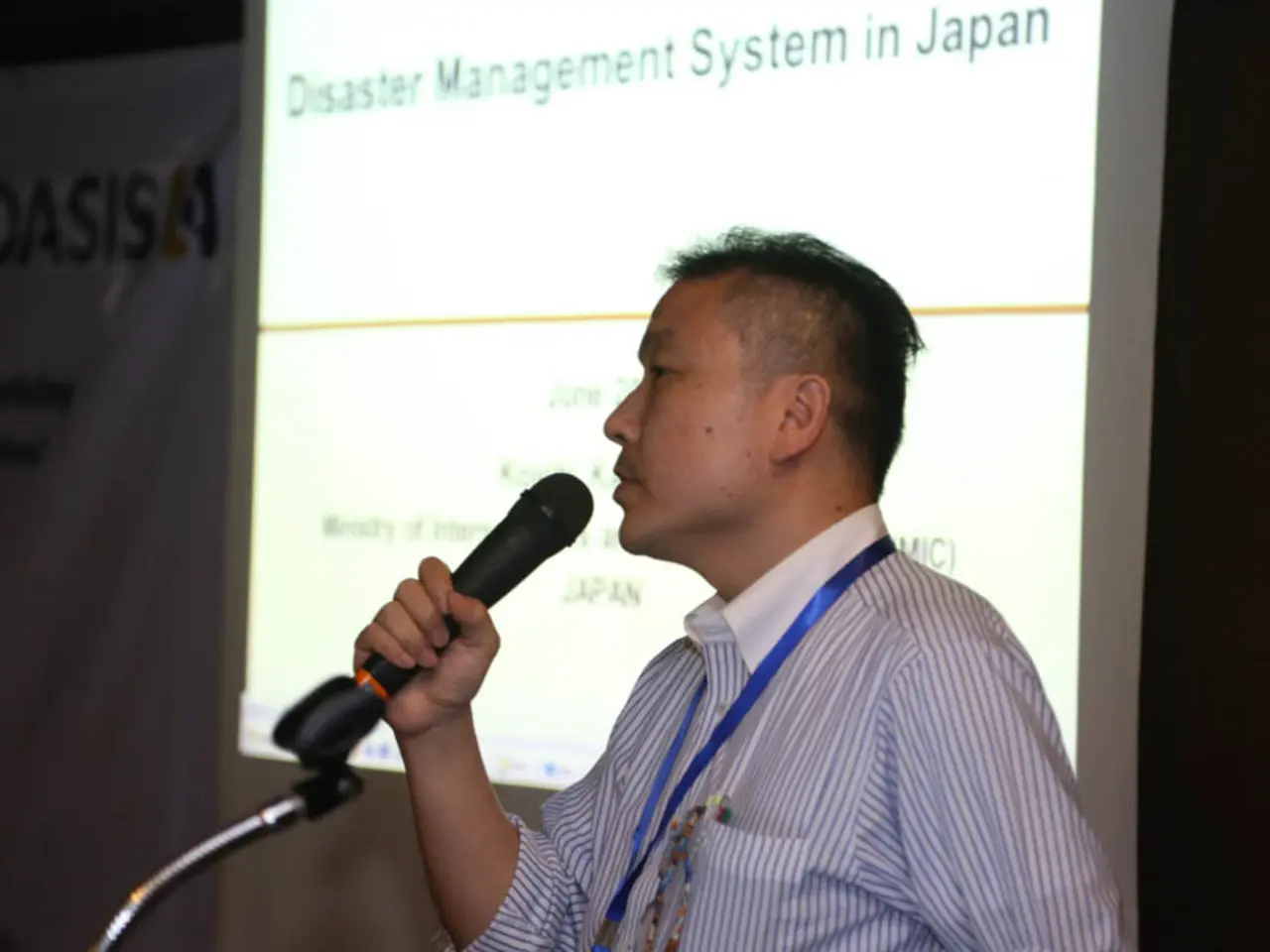unexpected decision by recently appointed Japanese Prime Minister Shigeru Ishiba to trigger a general election - reasons behind his timing revealed
New Prime Minister Shigeru Ishiba Takes Office Amidst Regional Tensions and Domestic Challenges
Shigeru Ishiba, a seasoned politician with 38 years of experience as a member of parliament, has been sworn in as the new prime minister of Japan on October 1. Ishiba's cabinet is composed of numerous security and defense experts, reflecting the potential threat from nuclear-armed North Korea and Japan's strained relations with China due to China's territorial ambitions.
Ishiba's government has introduced the largest-ever fiscal budget to address aging population costs and defense, eased visa requirements for Chinese tourists, and advanced legislation on same-sex partnerships and married couples' surnames with caution. Ishiba's domestic policies prioritize regional revitalization, social security, and digitalization, with a focus on social equality reforms and sustainable economic growth.
The new prime minister aims to reduce the gender pay gap, support digital transformation, and enhance high school education accessibility and social insurance cuts through cooperation with opposition parties. Ishiba maintains policy continuity from former PM Abe’s administration, advocating for steady economic and security strategies without major shifts in migration or equality policies.
On foreign policy, Ishiba has strengthened alliances, notably with the United States and Australia, improving trade negotiations and defense partnerships, such as exporting Mogami-class frigates to Australia, enhancing regional security collaborations. Relations with South Korea are warming with planned high-level summits, while he balances historical controversies by avoiding sensitive visits like to the Yasukuni Shrine. Ishiba’s outreach extends to Africa, championing sustainable growth, youth and women’s empowerment, and private sector development via Japan-Africa cooperation.
Ishiba’s defense vision is assertive but measured: he proposed but withdrew an Asian NATO-style framework and supports Japan's Self-Defense Forces' strategic deployments, including ties to the U.S. and Taiwan, reflecting concern over regional security without drastic shifts from the 2022 National Security Strategy.
Officials in Washington are nervous about Ishiba's proposal of an "Asian Nato", while there is unease about Ishiba discussing his alliance reshaping ideas with Donald Trump, should he win the US election. Ishiba has expressed a desire to reshape the US-Japan alliance, but may need to be pragmatic in the short-term. Ishiba has also called for deeper engagement and more diplomacy with Beijing.
Shigeru Ishiba took office amidst controversy, with some within his party viewing him as controversial, while he is popular with the public. The Liberal Democratic Party (LDP) has signalled its desire to "mollify an angry public" with Ishiba's win. Ishiba has criticized the inequality of the US-Japan alliance and has promised to revitalise rural areas and address population decline.
The election for the prime minister position will take place on 27 October. Shigeru Ishiba, who worked briefly as a banker before going into politics, has expressed support for a more distributive "new capitalism" and a strong military to counter the Chinese threat.
[1] Japan Today, "Ishiba's new cabinet: who's who?" https://www.japantoday.com/category/national/view/ishibas-new-cabinet-whos-who [2] Nikkei Asia, "Japan's Ishiba signals diplomatic shift with China, Africa" https://asia.nikkei.com/Politics/International-relations/Japan-s-Ishiba-signals-diplomatic-shift-with-China-Africa [3] The Diplomat, "Shigeru Ishiba's Foreign Policy: A New Approach for Japan?" https://thediplomat.com/2022/09/shigeru-ishibas-foreign-policy-a-new-approach-for-japan/ [4] The Japan Times, "Ishiba's cabinet: What to expect?" https://www.japantimes.co.jp/news/2022/09/28/national/politics-diplomacy/ishibas-cabinet-what-expect/
The new prime minister, Shigeru Ishiba, is navigating a complex landscape, implementing policies that reflect both domestic challenges and international pressures. Ishiba's government is focusing on policy-and-legislation that addresses regional revitalization, social security, and digitalization, while also engaging in politics on the global stage, as evidenced by his efforts to strengthen alliances and foster diplomatic relationships with countries such as China and Africa. (Policy-and-legislation, politics)
In the realm of general-news, Ishiba's government has been making headlines for their ambitious fiscal budget, easing visa requirements for Chinese tourists, and advancing legislation on same-sex partnerships and married couples' surnames. Their foreign policy initiatives, including the proposed "Asian NATO-style framework," have stirred conversations, particularly among officials in Washington. (General-news)






